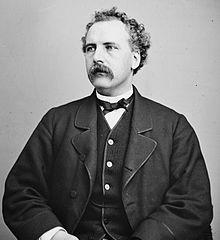Alexander Pope Quotes - Page 17

He knows to live who keeps the middle state, and neither leans on this side nor on that.
New, distant Scenes of endless Science rise: So pleas'd at first, the towring Alps we try.
And you, my Critics! in the chequer'd shade, Admire new light thro' holes yourselves have made.
Is there no bright reversion in the sky, For those who greatly think or bravely die?
In adamantine chains shall Death be bound, And Hell's grim tyrant feel th' eternal wound.
Who ne'er knew joy but friendship might divide,Or gave his father grief but when he died.
Who pants for glory, finds but short repose; A breath revives him, or a breath o'erthrows.
Still follow sense, of ev'ry art the soul, Parts answering parts shall slide into a whole.
But thinks, admitted to that equal sky, His faithful dog shall bear him company.
The good must merit God's peculiar care; But who but God can tell us who they are?
Some have at first for wits, then poets passed, Turned critics next, and proved plain fools at last.






